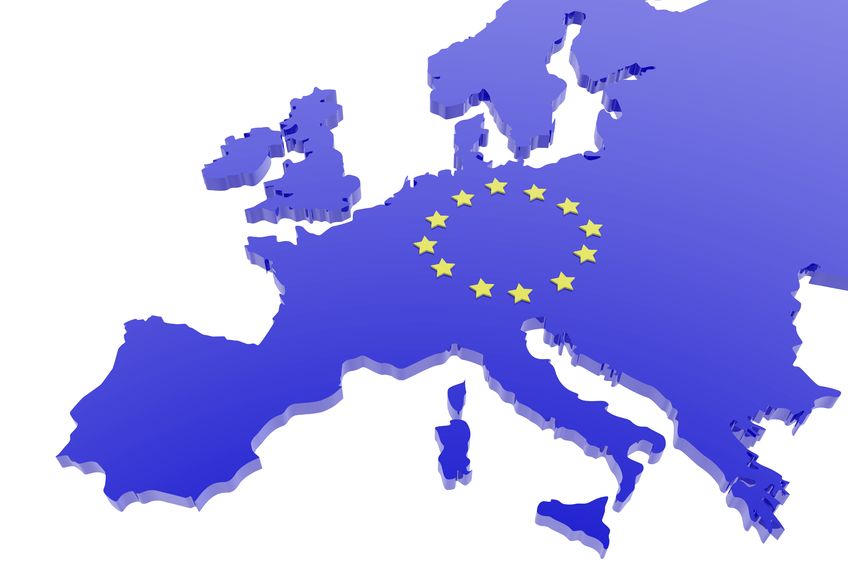
Your clients may well have the jitters over how the results of the U.K.’s upcoming Brexit referendum could affect their investment portfolios. On June 23, Britons will vote on whether the country should “stay” in or “leave” the 28-member European Union (EU), and the results could affect capital markets around the world.
The implications of the referendum have been the subject of endless and at times vitriolic debate on both sides of the fence. Investors have been caught smack in the middle — uncertain about the impact of Brexit (short for Britain’s exit) on their investments amid periodic bouts of market volatility, fuelled by poll results and charged public debate.
Given the potential for market disruption, it is important to help your clients understand the ramifications of Brexit for their portfolios and to take steps to avoid any potential shocks.
“The outcome of the vote is too close to call,” says Christine Tan, chief investment officer and senior portfolio manager with Excel Investment Counsel Inc. in Mississauga, Ont. The results of various European polls have wobbled back and forth between the “leave” and “stay” camps, says Tan, who suggests that a high percentage of undecided voters could swing the vote either way.
In general, clients should “stay in safe assets that can weather volatility,” says Jennifer Lee, senior economist with BMO Capital Markets in Toronto, adding that the potential for Brexit has heightened risk aversion in the markets. Investors should consider investing in high-quality, large-cap U.S. and Canadian equities, as well as gold, which may also rally, Lee says.
If the U.K. exits the EU, there will be a flight to quality, providing short-term benefits to the U.S. and Canada, Lee says, which would lead to an appreciation in equity values.
Tan says clients should focus on maintaining well diversified portfolios, paying attention to both asset class and geographical diversification as a way to mitigate market volatility.
She also suggests capitalizing on long-term trends that are unlikely to be upended by market volatility. Investing in the digital and mobile technology sectors and environmentally friendly stocks would fall in this category. She recommends having a diversified barbell portfolio that includes bonds for safety and defensive and dividend-paying equities for growth and income.
Here is more detail on the referendum risks — and opportunities — that your clients should consider:
> Global financial risk
Should voters opt for Brexit, global financial risk could heighten, resulting in “severe regional and global damage,” the International Monetary Fund (IMF) stated in a report on the U.K. economy last month. The IMF warned that a “leave” vote would result in a protracted period of uncertainty, accompanied by a sharp rise in interest rates and heightened market volatility, while damaging London’s status as a global financial centre. The Bank of England (BoE) has expressed similar sentiments.
> Market volatility
If Brexit materializes, the markets could experience a protracted period of volatility that could spread to global markets, Tan says.
Lee cautions that negotiating an exit with the European Commission (EC), the executive arm of the EU, could take as long as two years, with potential pushback from the EC to deter other member countries from following suit with the U.K. This means the impact of Brexit could last longer than anticipated.
However, if the U.K. remains in the EU, the impact will be minimal, says Tan. She adds that Brexit has already been priced into the market: “This presents buying opportunities for investors” as the market could rebound if the “stay” vote wins.
> Currency volatility
The British pound could further weaken if Brexit materializes, Tan says, making Canadian imports from the U.K. cheaper. But if the U.K. votes to stay in the EU, the pound would likely strengthen. It should be noted that the U.K. controls its own monetary policy, as it is not a part of the European Monetary Union, giving it greater policy flexibility than other EU countries. The BoE could raise interest rates — thus boosting the pound — should the central bank see fit to do so.
> Trade relationships
Lee says that with the U.K. accounting for only about 2.5% of Canadian trade, the impact of Brexit on Canada will be minimal. But the U.K. could face substantial challenges negotiating trade agreements with EU members; retaining access to the single market for duty-free trade and financial services; and on attracting domestic investments.
Although it is not expected that Canada’s economy will be seriously affected, the results of a survey (released in early June) of 20 countries most exposed to a potential U.K. exit from the EU, compiled by S&P Global Ratings, lists Canada as the only non-European country that is exposed. Ireland, Luxembourg, Malta, and Cyprus topped the list of countries that are most exposed.
Lee cautions, however, that the referendum result may not settle the issue. She contends that whether the results of the referendum would be binding is debatable. If the vote to leave is narrow, the government could defer or possibly set aside the result.
On the other hand, Tan says, if the vote is close in favour of staying in the EU, Brexit “will remain an issue for the government.”
There have been calls for U.K. to leave the EU for decades. The country last voted on leaving the European Economic Community (the predecessor to the EU) in 1975, when 67% of voters chose to “stay.”
British Prime Minister David Cameron promised to hold a referendum should he win the country’s 2015 general election. This commitment follows increasing concerns among proponents for Brexit, who believe that Britain does not have sufficient say in decisions of the EU. They claim the U.K.’s financial contributions significantly outweigh the benefits it receives; the EU imposes too many rules that are holding the country back; and the U.K. has lost control over its borders.
Photo copyright: genialbaron/123RF